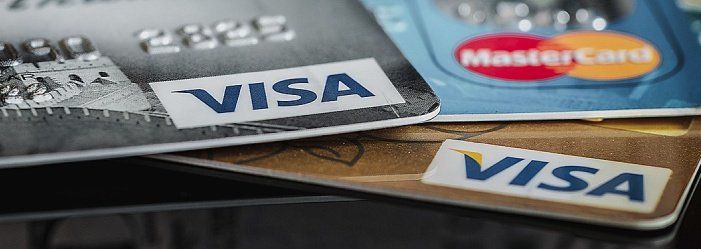Last Updated: March 15, 2024
Learning how to avoid debt from the start in important

Stepping into the world of financial independence comes with its share of challenges, with managing debt being at the forefront. In today's economic landscape, it's more important than ever to arm yourself with knowledge and strategies to navigate through financial hurdles successfully.
Inspired by leading financial insights, this guide offers a detailed roadmap to avoiding common debt pitfalls. From building a robust emergency fund to understanding the nuances of credit utilization, we delve into practical tips that pave the way for a debt-free life.
Join us as we explore essential strategies to maintain your financial health and steer clear of debt's grip.
Want to skip the article and speak directly to a debt specialist? Click here for a free consultation.
1) Make sure your credit card balance never exceeds 30% of your total limit
The idea behind not letting your credit limit exceed 30% comes from the "carrying capacity principle" which states that you should never use 10% or more of what your body can carry.
The same thing is similar with money - if you are using 30% or more of your available income, then something must be cut back to where it's less than 30%.
Doing this also has the effect of increasing cash flow by decreasing owing. So yes, make sure it doesn't exceed 30%.
Always make sure you have room on your line of credit. You never know when an emergency will arise without warning or the new iPad you've been wanting may show up for sale.
If there is no balance, and if it's too much of a hassle to remember to pay every month, consider cutting up the card and getting a new one with a smaller limit, and consider the best ways to pay off your credit cards to maintain a healthy credit score. It's better than missing payments or tallying up several years' worth of interest charges!
Credit scoring models look at your credit utilization ratio - the amount of revolving credit you're using compared to your total available credit. High utilization hurts your credit score, while low utilization helps.
It's generally recommended to keep individual card balances below 30% of the credit limit. Paying off cards completely every month is ideal if possible. If you can't pay in full, be sure to pay more than the minimum payment so you're actively lowering the balance. Consider setting a budget for discretionary spending that allows you to pay off your monthly card purchases.
High balances also result in more interest charges. Paying off cards monthly avoids paying costly credit card interest rates. Review your card terms to understand the APR you'll pay if you carry a balance month-to-month.
2) Don't use more than one credit card at a time
Using more than one credit card at the same time can lead to over-dependence and unhealthy habits with both cards.
Instead of running several cards simultaneously, find the one that best meets your needs and use it exclusively. And only charge what you can afford to pay off every month before interest starts piling up.
If you don't maintain a certain balance on all your cards, then any time you make a purchase or incur an interest fee, the debt will accumulate and compound.
So not only will it be harder to pay off the debt, but by default, your balances and interest rates (which can be weirder) will remain unchanged.
When balances are spread over different cards, it's less obvious how much revolving credit card debt you have in total.
Using just one primary credit card simplifies tracking your spending and payments. It also avoids being tempted by unused credit on other cards. Leave seldom-used cards at home or set spending alerts on them to monitor activity.
If you rely on more than one credit card, be vigilant about paying off balances in full each month to avoid interest charges. Understand how debt on multiple cards at high-interest rates compounds over time. Create a plan and budget that allows you to pay off any revolving balances quickly.
Learn more by reading our article How Many Credit Cards You Should Have
3) Avoid using cash advances and payday loans as much as possible
Cash advances and payday loans can be a gateway to a never-ending cycle of financial instability. These types of loans should not be taken lightly or at face value – they have the potential to spiral you into an endless debt hole quickly, so it’s important to use them sparingly as a last resort, if at all.
They often come with high-interest rates that can drive up your monthly payment and produce high-interest financing charges for those who need longer terms, so even though you think you're paying down your balance if cash advances or payday loans are used for their intended purpose, actually what tends to happen is the opposite.
The use of payday loans should be avoided because it's much better for your credit to avoid the accumulation of debt.
If you must use these advances, consider borrowing directly from friends or family members instead. The fees, interest rates, and terms associated with these types of lending are designed to benefit the lender, not the borrower.
Payday loans, in particular, carry extremely high-interest rates, frequently 200% or more APR. They are structured so that borrowers get caught in a cycle of rolling over loans while fees accumulate. Do your research to understand all the costs, and explore other lower-interest emergency funding options first before resorting to payday lenders.
If a cash advance is unavoidable, only use it for essential expenses in a true emergency. Have a plan to pay it off as quickly as possible to avoid paying excessive interest on the balance.
4) Pay off balances on time every month even if it means paying only the minimum due
Paying off balances on time every month will reduce the amount of interest being charged.
Furthermore, if your credit card has an annual fee then failing to pay off your balance in full will result in giving up all the money saved from the annual fee.
The flip side of this argument is that borrowing can be a way for someone with bad credit or no savings account to build their credit or save for emergencies without robbing Peter to pay Paul.
Obviously at some point over-leveraging oneself becomes problematic but most everyone recognizes both extremes as destructive behaviors.
As a general rule, it's good to pay off debt as soon as you have the chance so that you don't have interest costs.
If one pays off balances on time each month and has a history of paying on time then there won't be any real cost in their credit score.
The exception would be if one went past due and faced a late payment fee charged by the creditor which would start out at around $35-$39 depending on the type of account.
Paying late, or missing a payment entirely, will result in penalties and additional fees. Late payments can incur fees from the credit card issuer, usually around $30 initially. More importantly, it will show up as a negative mark on your credit reports causing your scores to drop. Multiple late payments will hurt your credit even more.
Set calendar reminders for credit card due dates so you don't forget. Sign up for account alerts from your credit card issuer. Consider automating payments directly from your bank account to avoid unintentional late payments.
5) Remember to pay your bills first before spending money elsewhere
Placing your bills first ensures that your debt will not compound. The interest on unpaid debts grows every day, which means you would have to pay more money in the future.
This will make it harder to keep up with everyday living costs because it would be using money that could have been saved for food/rent/other necessities.
If you are unable to pay off your debt at any one time before it starts accumulating daily interest, breaking the payments into smaller installments becomes necessary and this is how credit cards come into play.
When paying off credit cards, use specific monthly amounts so they can be paid in full within a year's time-or if one cannot afford this deadline until 18 months or 2 years has past use lower monthly installments, but be sure to focus on paying off more than the minimum due each month.
Payment history on loans and other bills also impacts your credit score. Missed payments can result in fees and increased interest rates.
Prioritize bills and determine minimum discretionary spending levels first when budgeting. An emergency fund can provide a buffer for those months when money is tight. Letting essential bills go into collections will damage your credit rating and make accessing affordable credit more challenging.
FAQs
Conclusion
This article has covered five common debt mistakes and how to avoid them. We hope it's helped understand some of the common mistakes that people make when it comes to debt.
Avoiding common debt mistakes takes diligence, but is completely achievable. The payoff of getting your finances on track is well worth the effort. Monitor your spending, maintain low credit card balances, avoid risky lending options, pay bills on time, and don't hesitate to seek help from reputable nonprofits. With smart money management and some discipline, you can take control of your debt situation and pave the path to financial freedom.
The key is to create a realistic budget that aligns with your values and priorities. Stick to your budget by tracking where every dollar goes. Find ways to cut discretionary costs in the short term to allocate more money towards paying off debts. Develop long-term healthy money habits by saving for emergencies and retirement. Seek out educational resources to continue boosting your financial knowledge and skills.
If you want help, don’t hesitate to reach out! We provide a
free consultation about your personal situation and discuss the best ways for you to overcome your debts.
✔ Accredited by Better Business Bureau with BBB A+ rating (4.92 rating and 1,700+ reviews)
✔ 7.5 star rating by BestCompany.com (over 2300+ client reviews)
✔ 4.8 star rating by TrustPilot (over 2200+ verified consumer reviews)
✔ ConsumerAffairs.com Accredited (over 500+ verified reviews with an average rating of 5 stars)
✔ A Top 10 Rated Compan by TopTenReviews.com , ConsumersAdvocate.com and Top10debtconsolidation.com
✔ 4.6 star rating by Google (400+ client reviews)
✔ 100% rating by SuperMoney (8 client reviews)
Reduce Your Credit Card Debt By Up to Half

BBB Reviews | 4.9/5.0 Rating









 Do Not Sell My Personal Information
Do Not Sell My Personal Information